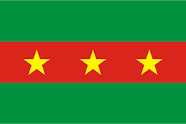Difference between revisions of "Language/Ewe/Grammar/Adjectives"
m (Quick edit) |
m (Quick edit) |
||
| Line 32: | Line 32: | ||
<hr>If you have any questions, please ask them in the comments section below.<br>Feel free to edit this wiki page if you think it can be improved. 😎 | <hr>If you have any questions, please ask them in the comments section below.<br>Feel free to edit this wiki page if you think it can be improved. 😎 | ||
==Related Lessons== | |||
* [[Language/Ewe/Grammar/Questions|Questions]] | |||
* [[Language/Ewe/Grammar/Future-Tense|Future Tense]] | |||
* [[Language/Ewe/Grammar/Plurals|Plurals]] | |||
* [[Language/Ewe/Grammar/Negation|Negation]] | |||
* [[Language/Ewe/Grammar/Pronouns|Pronouns]] | |||
* [[Language/Ewe/Grammar/Conditional-Mood|Conditional Mood]] | |||
{{Ewe-Page-Bottom}} | {{Ewe-Page-Bottom}} | ||
Revision as of 23:06, 25 February 2023
Hi Ewe learners! 😊
In today's lesson, we will be discussing adjectives in the Ewe language. Adjectives are words that describe or modify nouns and pronouns. They can be used to give more information about a person, place, thing, or idea.
Adjective Formation
Adjectives in Ewe are formed by adding suffixes to nouns. The suffixes depend on the gender of the noun. For example, the suffix -ɔ is added to masculine nouns, while the suffix -ɔ̃ is added to feminine nouns.
Masculine Nouns
When forming adjectives from masculine nouns, the suffix -ɔ is added. For example, the word for "man" is "mɔɖɔɖɔ", and the adjective form is "mɔɖɔɖɔɔ".
Feminine Nouns
When forming adjectives from feminine nouns, the suffix -ɔ̃ is added. For example, the word for "woman" is "ɖɔɖɔɖɔ", and the adjective form is "ɖɔɖɔɖɔɔ̃".
Adjective Placement
Adjectives in Ewe are placed before the noun they modify. For example, the phrase "big house" would be translated as "ɔdzɔɔ ɖɔɖɔ".
Adjective Agreement
Adjectives in Ewe must agree with the noun they modify in terms of gender and number. For example, the phrase "big houses" would be translated as "ɔdzɔɔ ɖɔɖɔɖɔ".
Adjective Comparison
Adjectives in Ewe can be compared using the suffixes -ɔ̃nɔ and -ɔ̃nɔ̃. The suffix -ɔ̃nɔ is used for masculine nouns, while the suffix -ɔ̃nɔ̃ is used for feminine nouns. For example, the phrase "bigger house" would be translated as "ɔdzɔɔɔ̃nɔ ɖɔɖɔ".
If you have any questions, please ask them in the comments section below.
Feel free to edit this wiki page if you think it can be improved. 😎
